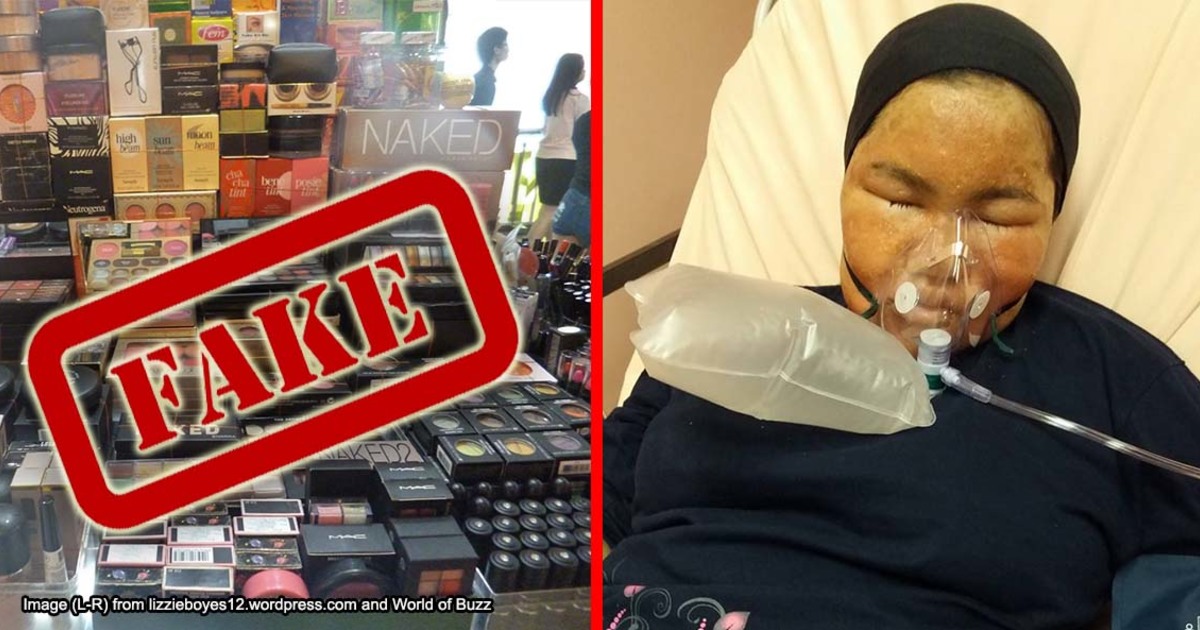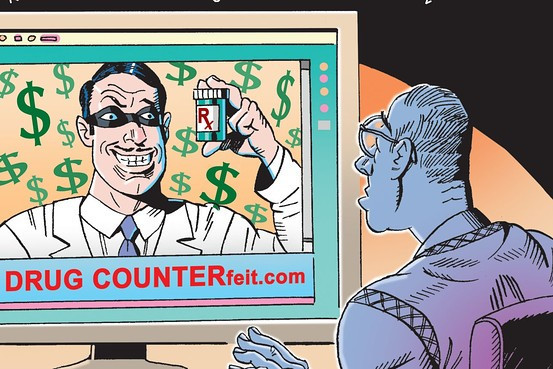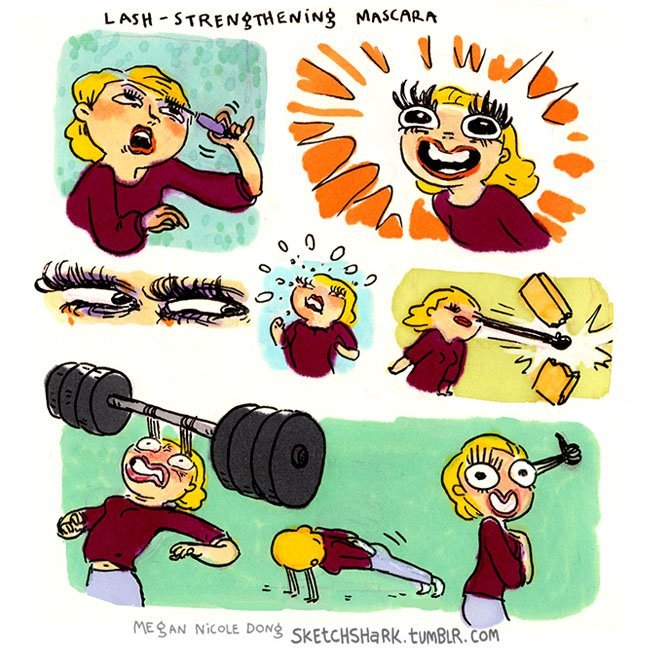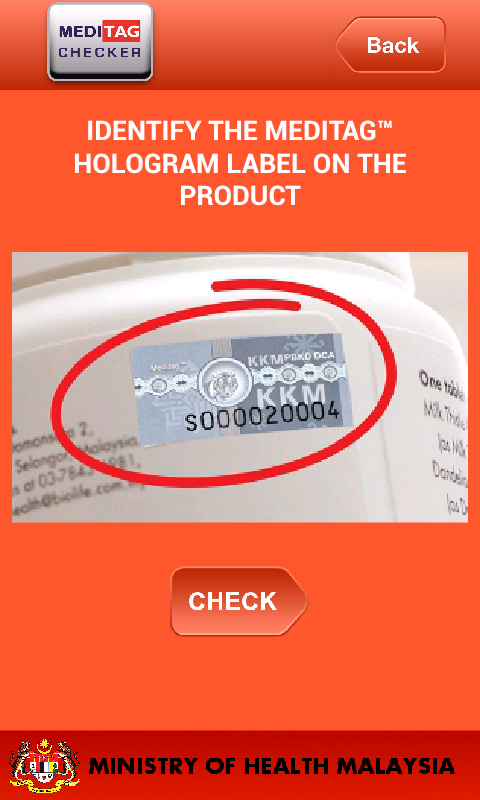

Consumer
How do I know if medicine and cosmetics in Malaysia are safe to use?
over 7 years ago Denise C.Have you ever come across a post by your friend on Facebook and it sort of reads something like this, “DID YOU KNOW THAT ACNE CAN BE SOLVED BY JUST ONE EASY STEP? BRAND XX IS SO EASY TO USE. JUST APPLY IT ONCE A DAY AND SEE THE RESULTS IN 3 DAYS. CONTACT ME NOW FOR MORE INFORMATION. #BRANDXX #THEBEST”
If you have seen posts (or ads) like these, then you would have been exposed to the world of supplements and cosmetics. More specifically, we are talking about those supplements or cosmetics that are lesser known and mostly marketed through social media. For example, instead of Sephora, it might be Sefarra, a newly opened cosmetic store that has been accused of copying Sephora and selling fake products. Instead of supplements and medications properly dispensed by your doctor or pharmacist, it might be an ad on some online site, alluding to uh...male powers.
Aside from that, just a month ago, the police busted a brother-sister gang in Penang and seized 18kgs worth of fake medicine from them.
But the question is, how do you even know if those products are safe for consumption/use? You could always stick to more established brands such as products by Dr. Vida but even some of her products were recently banned by our Ministry of Health for containing scheduled poisons such as mercury. If you are curious, acute exposure to mercury can cause psychotic reactions and continued exposure can lead to violent muscle spasms and death.
You could try reading the labels but who can even tell what those weird words say. So, are these products controlled by our government?
[READ MORE: What can you do if you bought fake food in Malaysia?]
Yes, they have to be registered with the Ministry of Health

So, the thing is, there are a plethora of different laws that govern (and overlap) the world of drugs and cosmetics such as the Sale of Drugs Act 1952 which gave birth to the Control of Drugs and Cosmetics Regulations 1984 and the Drug Registration Guidance Document which also mentions the Dangerous Drugs Act 1952 and the Poisons Act 1952 and the Medicines (Advertisement and Sale) Act 1956 and the...well, you get the point. There are tons of laws that govern drugs and cosmetics.
However, for the purpose of not making this article longer than our average life span, we won’t reference all the laws here but only certain ones. Also, an important point to note is that the control of these products are done by the National Pharmaceutical Regulatory Agency (“NPRA”), which is a part of the Ministry of Health.
The first law that we would be looking at would be the Control of Drugs and Cosmetics Regulations 1984 (“CDCR 1984”) which talks about the kinds of registrations needed for drugs and cosmetics.
For clarification, registration of drugs and pharmaceutical products are different from medicines which are registered with the Ministry of Health (not NPRA). This article will not deal with the registration of medicine with the Ministry of Health.
Under Regulation 7(1) of the CDCR 1984, no one is allowed to manufacture, sell, supply, import, or possess or administer any product unless the product has been registered and the person holds an appropriate licence that has been issued under the CDCR 1984.
“(1) Except as otherwise provided in these Regulations, no person shall manufacture, sell, supply, import or possess or administrator any product unless - (a) the product is a registered product; and (b) the person holds the appropriate licence required and issued under these Regulations.”
So, the next question is, how is a licence given? There are different kinds of licences that can be issued. Regulation 12 tells us that the Director of Pharmaceutical Services can issue either:
- A manufacturer’s licence which allows the holder to manufacture, and sell by wholesale or supply the product
- A wholesaler’s licence which allows the holder to sell by wholesale or supply the product
- A clinical trial import licence which allows the holder to import any product (whether registered or not) for clinical trials only
- An import licence which allows the holder to import and sell by wholesale or supply the product
These licences must be held alongside a properly registered product (Regulation 8). Beyond that, regulation 7B also gives consumers an added protection by specifying that a product would not be considered registered if it is found to contain additional ingredients aside from the ingredients of the registered product and if it was labelled with a different label. For example, if Product A is registered with ingredients B and C, it would lose its registered status if the authorities discover ingredient D in it. The same goes for labelling, if Product A is registered with the label of a cold medicine and later labelled as muscle relaxants, it would similarly lose its registered status.
Now that we are done with a super brief outline of how registration for medicine works, let’s move on to cosmetics.

The regulations for cosmetics are slightly different. There are bunch of ways that cosmetics can be prohibited from being manufactured, sold, supplied, imported, possessed or admnistered. This is found under Regulation 18A and it states that cosmetics cannot be manufactured or sold if:
- The cosmetic has not been notified with the NPRA
- The person is a not person who has been designated to place the notified cosmetics in the market
- The cosmetic is a notified cosmetic but it has been mixed with poison (as defined by the Poisons Act)
- The notified cosmetic has been mixed with a registered product (drugs, traditional medicine etc.)
- The cosmetic is labelled with another name
- The cosmetic has been labelled in a way that does not comply with any directives/guidelines
- The cosmetic’s notification has been cancelled by the Director of Pharmaceutical Services
- The cosmetic is labelled with words, symbols or safety features that claim to be true
Another interesting point to note is that aside from the plethora of rules that prohibit the sales of cosmetics, there are additional guidelines to adhere to in this Cosmetic Claims Guideline. We won’t go into too much detail but it essentially details how a product can be considered a cosmetic and what claims cosmetic products are not allowed to make. For example, most of us would not know this but skin products are not allowed to claim that they can reverse or prevent changes brought about aging.
[READ MORE: 5 common sales tactics in Malaysia that are actually illegal]
Now that we have given you a brief outline on how the registration and notification process works in Malaysia, let’s move on to the more pressing question…
How can I tell if the product is fake?

Image from play.google.com
The good news is that you don’t even have to get up from your chair to check if that BB cream you are applying is secretly mercury-laden and banned or if the fish oil pills you are popping are actually potato oil pills.
All you have to do is head over to the NPRA’s search engine which you can access here and search for the products you have either by their name, manufacturer’s name, serial number etc. It is as easy as that and once you are assured of their genuine status, you can use your products worry free.
The NPRA’s website also contains a list of registered products and notified cosmetics that have had their status revoked by the NPRA and you can find them here.
Aside from checking the details online, registered drugs and pharmaceuticals also have an additional point of protection through the use of the hologram security device (Meditag). This means products such as registered pharmaceutical products, traditional products, and natural products would have to be tagged with this Meditag and you can check the authenticity of these stickers at any pharmacy that has a Meditag hologram decoder. Aside from that, there is also an app that you can download here to verify the authenticity of the Meditag sticker.
So, if you find out that the product you have is fake, you can…
File a complaint with the NPRA
The NPRA has an online complaints form that you could use to submit any complaints. You should definitely submit a complaint if you have suffered adverse reactions from any products that you use so that the Ministry of Health can act on it.
Aside from filing a complaint with the NPRA, you could possibly bring a separate complaint, as a consumer of the product, to the National Consumer Complaints Centre. Similarly, a complaint can be made by easily filling up an online form here.
Also, the information that can be found in this article is merely a drop in the ocean of regulations and laws that the government has enacted to protect Malaysians from unsafe products.
At the end of the day, be a wise consumer. Never ever take an advertisement or recommendation of a friend at face value. Even if the products are properly registered/notified, the phrase, “one man’s poison is another man’s meat” applies. You would never know how certain products, which have been proven to work with your friends, might react with your body. So, play it smart and take the extra step to complete your own due diligence.
"No no I clean"